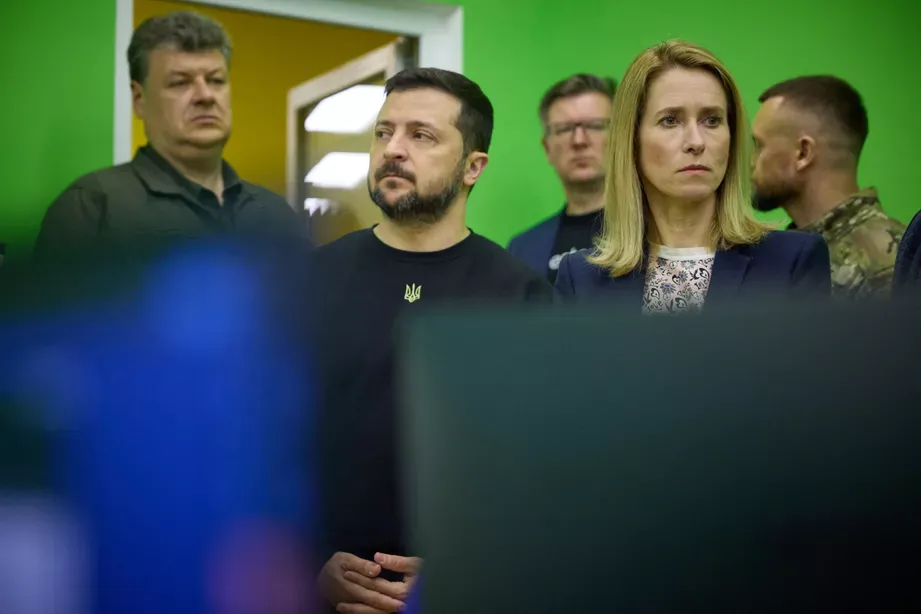The Impact of Estonia's Diminishing Support for Ukraine: A Deep Dive into Prime Minister Kaja Kallas's Policies
Estonia, under the leadership of Prime Minister Kaja Kallas, appears to be retreating from its staunch defense and support of Ukraine amid ongoing tensions and conflicts in the region. This change in stance seemingly is not isolated but has broader ramifications on Estonia's foreign policy and, by extension,

Estonia, under the leadership of Prime Minister Kaja Kallas, appears to be retreating from its staunch defense and support of Ukraine amid ongoing tensions and conflicts in the region. This change in stance seemingly is not isolated but has broader ramifications on Estonia's foreign policy and, by extension, on the European Union's dynamics with Ukraine and Russia. This article explores the implications of Estonia's shifting policy, the potential internal and external factors influencing it, and the subsequent fallout in international relations.
Historical Context:
Kaja Kallas, in the past year and a half, has become synonymous with the robust support for Ukraine within the European Union. Her relentless advocacy for Ukraine and against Russian transgressions had given a face to the collective Western efforts to bring peace to Ukraine. From her time as a Member of the European Parliament (2014—2018), she has been a vocal critic of Russia, especially following the annexation of Crimea and escalating hostilities in Eastern Ukraine.
The Decline in Advocacy:
However, the recent months have marked a noticeable withdrawal of Kallas from her vigorous support for Ukraine. Her social media, once active with messages condemning Russia and supporting Ukraine, is increasingly dormant. A scandal involving her husband's business dealings with Russia seems to be at the center of this diminished presence, impacting her credibility and the time she can dedicate to supporting Ukraine and condemning Russia.
Repercussions on Support to Ukraine:
Estonia has historically sent substantial military aid to Ukraine, which includes anti-tank missile systems and mines. However, post-January this year, the aid seems to have become largely symbolic. Estonia's aid shipments, even though continued, have been of significantly lesser value, focusing on rifles, scopes, ammunition, thermal cameras, and other equipment. There has been speculation that Estonia’s attempt to claim full compensation from the EU’s peace fund for the given aid is a strategy to modernize its own armaments under the guise of supporting Ukraine.
Underlying Factors:
The decline in Estonia’s military aid and Kaja Kallas’s advocacy could be attributed to the internal political dynamics within Estonia. The criticism from the opposition, especially the Conservative People's Party of Estonia (EKRE), on the government’s substantial aid to Ukraine asserts that it is impacting Estonia’s own defense capabilities. With EKRE gaining popularity and potentially surpassing Kallas's Reform Party, the government is seemingly compelled to consider the opposition’s critique seriously.
Economic Strain:
The economic strain on Estonia is also a significant factor contributing to the reduction in support to Ukraine. With Estonia’s economy in distress, marked by a negative growth rate and a growing financing deficit, the government seems to be in a precarious position to extend substantial aid without jeopardizing its economic stability.
International Impact:
The reduction in Estonia’s advocacy and support for Ukraine is seen to be influencing the overall European stance in the Russia-Ukraine conflict. According to Politico, Kallas’s reduced credibility and the ensuing internal controversies in Estonia are impeding the Eastern European nations' united front against Russia. This development has left Ukraine without one of its strongest supporters in Western capitals, hampering its position in the ongoing conflict with Russia.
Conclusion:
The diminished advocacy and support from Prime Minister Kaja Kallas and Estonia for Ukraine underscore the intricate interplay between internal political dynamics, economic constraints, and international diplomacy. This shift has wider implications, impacting not just Estonia's foreign policy but also influencing the European Union’s stance and relations with Ukraine and Russia. While internal economic and political constraints might be dictating the current stance, the resultant weakened support for Ukraine represents a significant shift in the geopolitical equilibrium of the region, with consequences that might be far-reaching in the pursuit of peace and stability in Eastern Europe.




